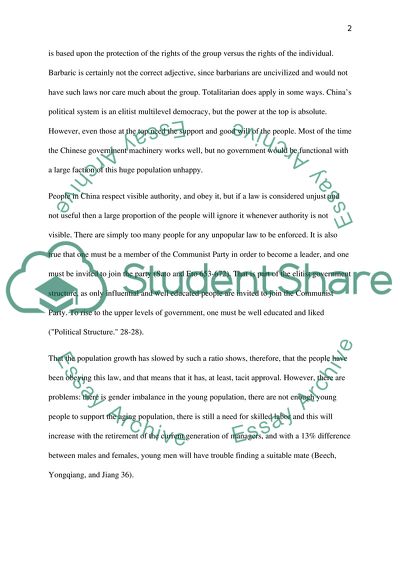Cite this document
(Chinas New One Child Policy Essay Example | Topics and Well Written Essays - 1750 words, n.d.)
Chinas New One Child Policy Essay Example | Topics and Well Written Essays - 1750 words. https://studentshare.org/politics/1805130-chinas-new-one-child-policy
Chinas New One Child Policy Essay Example | Topics and Well Written Essays - 1750 words. https://studentshare.org/politics/1805130-chinas-new-one-child-policy
(Chinas New One Child Policy Essay Example | Topics and Well Written Essays - 1750 Words)
Chinas New One Child Policy Essay Example | Topics and Well Written Essays - 1750 Words. https://studentshare.org/politics/1805130-chinas-new-one-child-policy.
Chinas New One Child Policy Essay Example | Topics and Well Written Essays - 1750 Words. https://studentshare.org/politics/1805130-chinas-new-one-child-policy.
“Chinas New One Child Policy Essay Example | Topics and Well Written Essays - 1750 Words”. https://studentshare.org/politics/1805130-chinas-new-one-child-policy.


